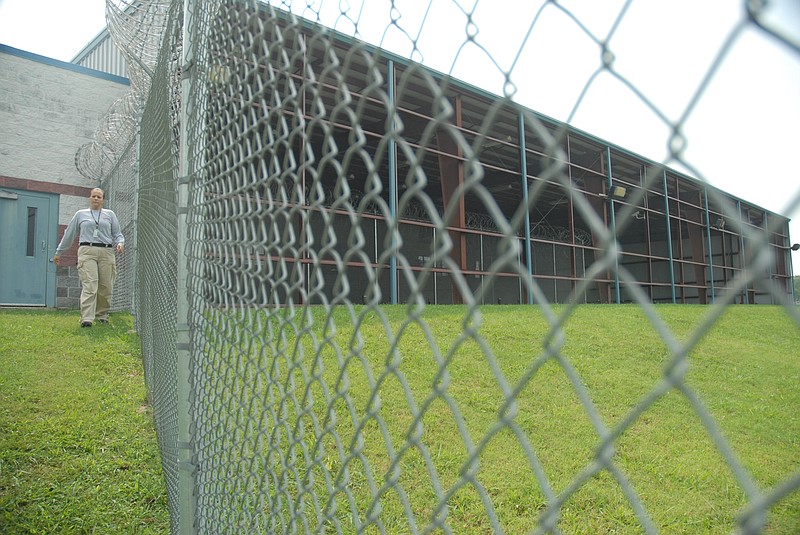Hamilton County's sheriff wants to use a series of "creative deferment" strategies to reduce the local inmate population while transitioning everyone from the downtown jail to the Silverdale correctional facility over the next few years.
"We will slowly empty our floors here," Sheriff Jim Hammond said Thursday, "but we simply can't do it without reducing the numbers. How do we reduce the numbers? Through creative deferment, if you will."
That means diverting more non-offenders from the justice system with ankle monitors, researching alternatives to the cash-bond industry and giving officers more discretion to help people in mental health crises instead of taking them to jail.
All of this follows the county's recent decision to destroy the overcrowded, crumbling jail, expand Silverdale to accommodate every prisoner and put Hammond's office in charge of daily operations. There's about 1,600 inmates between both facilities, Hammond said.
Hammond didn't have a price tag Thursday for the Silverdale expansion, but said some of it will flow from the $180 million bond issue that County Mayor Jim Coppinger announced in August. Hammond's first priority is adding 128 beds for the most egregious offenders.
Local industry experts applauded the ideas but had some mixed feelings.
Some questioned how much conditions at Silverdale will change as long as CoreCivic owns the four-year contract to operate it. The private company, formerly known as Corrections Corporation of America, has a profit margin to consider and may be maximizing its wealth at the expense of medical care for inmates, one attorney said.
"The sheriff's going to have control over it again, but you've still got CoreCivic in there, so I don't see what the difference is," said attorney Robin Flores, who has sued the private jail several times over the last 17 years on behalf of clients. "The problem I've seen there is they withhold medical treatment as a way to look out for their bottom line."
Hammond said the county commission can vote to tweak its contract with CoreCivic. County officers would oversee daily operations, take better stock of how inmates are given their medication and launch internal investigations if something happens behind bars, he said.
The downtown jail, which costs about $87,000 a year to operate, has many inmates on costly psychotropic medication.
To help them, Hammond said, officers can start taking people experiencing mental health crises to pre-arrest diversion programs such as is offered by Volunteer Behavioral Health, as opposed to jail. Officials with the center, located along Cherokee Boulevard, could not be reached for comment Thursday.
But investing in those pre-arrest diversion programs can help alleviate the jail population, said attorney Randy Russell, who sets the first bonds for thousands of defendants as chief magistrate judge.
Once an officer arrests a person, he or she is taken to jail and brought before a magistrate to determine bond. If the county diverts that arrest altogether, or writes more tickets instead of making arrests, the jail wouldn't have to expend resources or make room for non-violent offenders.
"I think that would really, really help," Russell said, "because there's nothing we can do when they bring people in except to have a hearing and then release them on an [own recognizance] bond."
Replacing the cash-bond industry is more complex. Some states, such as Maryland, New Jersey and New Mexico, have worked to ensure defendants aren't sitting in jail simply because they can't afford bond.
Other local attorneys said bond companies already do a good job getting people to court. They said the system needs to give people reasonable bonds and not withhold bond altogether for technical probation violations.
"Some of them are technical violations, like not complying with getting an alcohol or drug assessment, or failing to report to a probation officer, or having an isolated dirty drug screen over the course of a two-year probation," said defense attorney Bill Speek.
"Those would be pretty low-risk offenses, and I think you can reduce the jail populations by affording more of those offenders a reasonable bond" while the case is pending.
Editor's note: This story was corrected to reflect that daily operations at the downtown jail cost about $87,000 on a daily basis. A previous version incorrectly stated that it was $87,000 on a yearly basis.
Contact staff writer Zack Peterson at zpeterson@timesfreepress.com or 423-757-6347. Follow him on Twitter @zackpeterson918.

